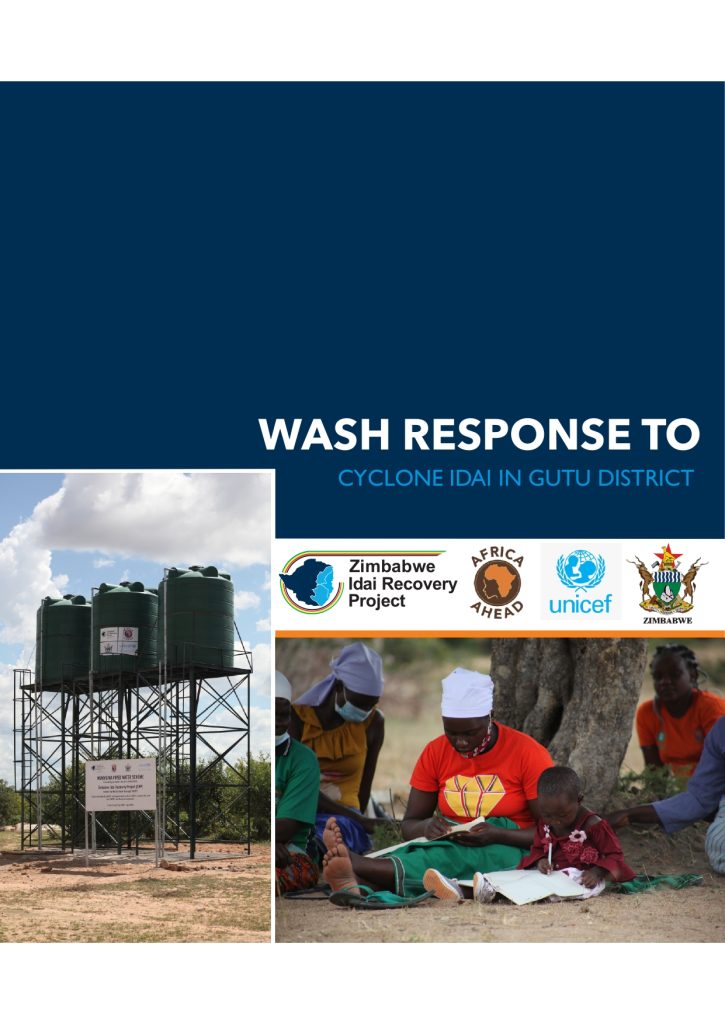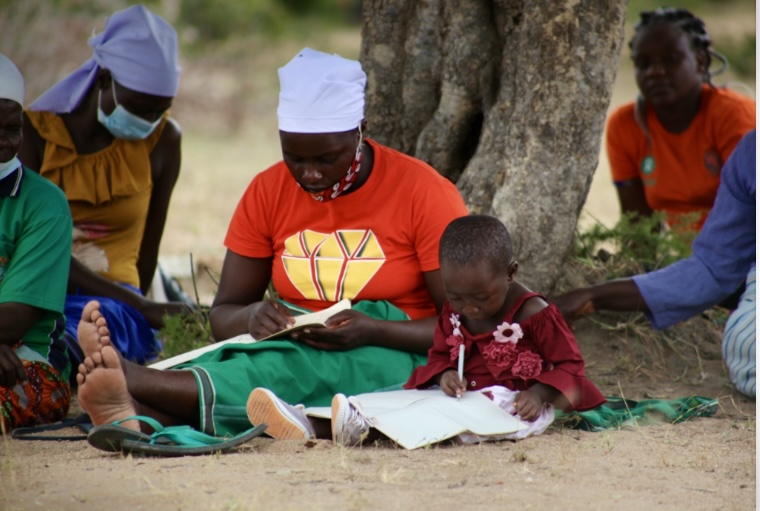When Cyclone Idai hit Zimbabwe during the weekend of 15 –17 March 2019 no one anticipated the extent of damage and loss it caused. It brought heavy rains and strong winds that triggered flooding and landslides, resulting in loss of life, damage to homes, fields, schools and roads, and disruption to livelihoods. Chimanimani and Chipinge districts were hit hardest. Seven other districts in Manicaland, Masvingo and Mashonaland East Provinces were also affected, including Gutu district, where Africa AHEAD implemented a mix of interventions to rescue communities from poor sanitation and hygiene.
Cyclone Idai affected more than 270,000 people in Zimbabwe, displacing over 51,000, killing more than 340 and many others went missing. Scores of children were orphaned, while female survivors faced gender-based violence. Roads and bridges were severely damaged; some 1,500km of the road network was rendered unusable for months, affecting market access. Livelihoods were disrupted and 140 schools were affected. Housing, health, irrigation and other agriculture facilities were damaged, as were forests and protected areas.
A number of humanitarian players descended on Chipinge and Chimanimani and we worked with communities in Gutu district’s five worst affected wards. Key aspects of our response were innovative and demonstrated good practice. Our primary focus as Africa AHEAD was to respond to WASH issues.This included construction of piped water schemes, rehabilitation of water points, construction of toilets, formation of community and school health clubs and spreading COVID-19 awareness.
Working closely with a number of stakeholders,we are proud to have reached over 20,000 people with improved WASH services as we built back better Gutu wards hit by Cyclone Idai. Jokoro village in ward 10 is nearing 100% sanitation cover as the community adopts enhanced hygiene and sanitation practices promoted by Africa AHEAD. Munyikwa community in ward 15 is also another perfect example of a transformed society with over 700 people spread across four villages benefitting from a piped water scheme with a distribution network of 9km. One notable practice dropped by most community members is open defecation and we attribute that to Africa AHEAD’s work in the district.
We celebrate our work and achievements because of the support from our generous partners under the ZIRP banner – UNOPS,World Bank and UNICEF.We are grateful to these international organisations for their helping hand not only in Gutu district but to all cyclone affected communities in Zimbabwe. Assistance came in form of finance, technical advisory services, high level monitoring visits and linking us with other implementing organisations in the same landscape for cross learning.
Lastly, we are indebted to the Government of Zimbabwe for allowing us to work in Gutu district to complement its efforts in responding to the devastating effect of Cyclone Idai. We worked closely with various government ministries and line departments that include the Ministry of Health and Child Care, Ministry of Local Government, District Development Fund, Gutu Rural District Council and many more government structures.The result was a well-coordinated approach that brought all partners together for a common goal and achievement of the desired results.


